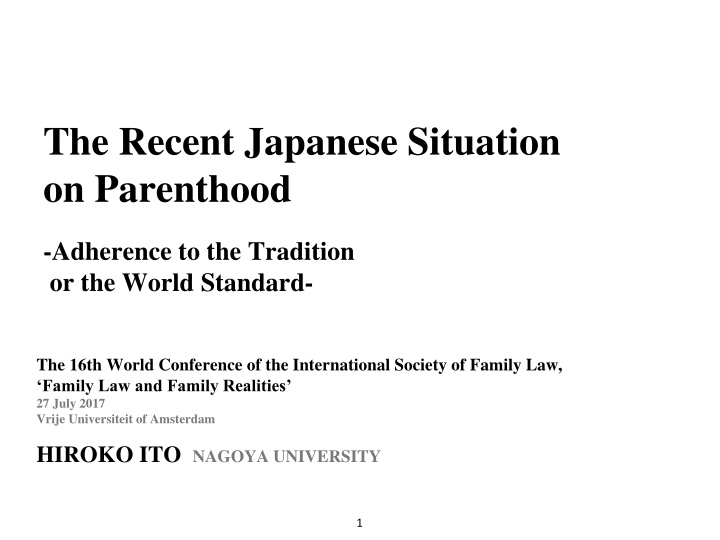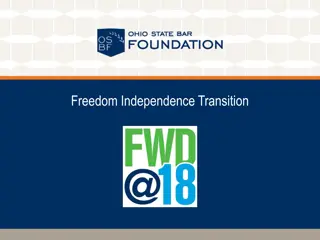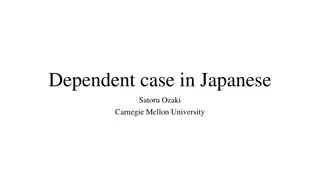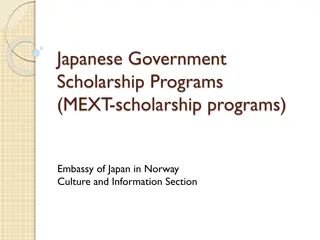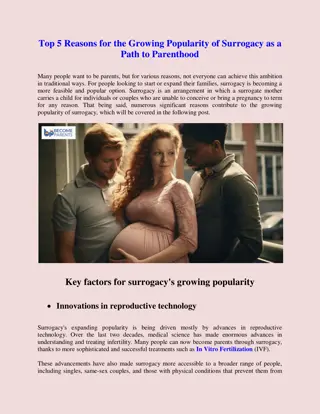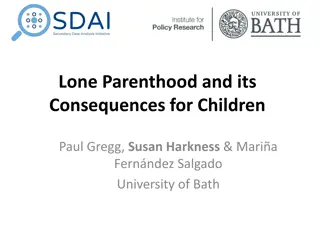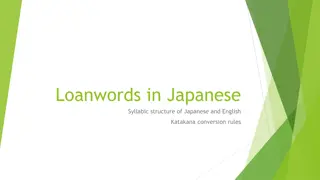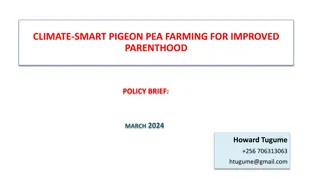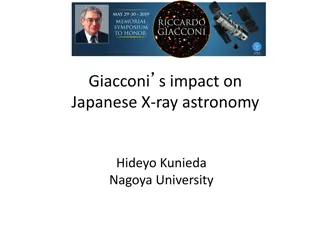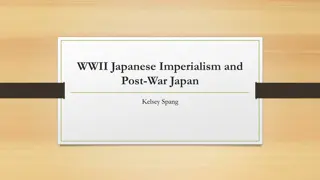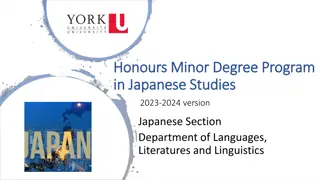Recent Japanese Parenthood Situation - Tradition vs. World Standard
The presentation delves into Japan's adherence to traditional family values in the face of global norms regarding parenthood, discussing ART laws, surrogacy, and legal complexities. Explore the challenges and potential shifts in Japanese family law through case studies and international comparisons.
Download Presentation

Please find below an Image/Link to download the presentation.
The content on the website is provided AS IS for your information and personal use only. It may not be sold, licensed, or shared on other websites without obtaining consent from the author.If you encounter any issues during the download, it is possible that the publisher has removed the file from their server.
You are allowed to download the files provided on this website for personal or commercial use, subject to the condition that they are used lawfully. All files are the property of their respective owners.
The content on the website is provided AS IS for your information and personal use only. It may not be sold, licensed, or shared on other websites without obtaining consent from the author.
E N D
Presentation Transcript
The Recent Japanese Situation on Parenthood -Adherence to the Tradition or the World Standard- The 16th World Conference of the International Society of Family Law, Family Law and Family Realities 27 July 2017 Vrije Universiteit of Amsterdam HIROKO ITO NAGOYA UNIVERSITY 1
Introduction Aim of this Presentation No ART LAW in JAPAN. Adherence to the Traditional Family. AID and Surrogacy 2
ART in JAPAN Civil Code child born in wedlock Wife s delivery is required Not Amended Yet Ministry of Health(Report in 2000), Ministry of Justice (Draft in 2003), Science Council (Report in 2008) IVF -couple s embryo, delivered by the wife AD -delivered by the wife (husband s consent) Surrogacy not allowed 3
Civil Code, Book 4,Chapter III (Presumption of Child in Wedlock) Article 772 (1) A child conceived by a wife during marriage shall be presumed to be a child of her husband (2) A child born after 200 days from the formation of marriage or within 300 days of the day of the dissolution or rescission of marriage shall be presumed to have been conceived during marriage 4
Legality of a child who was born by AIH but without the husband s consent Nara Case 2017 Married in 2004. A foreign husband First AIH child (2011). Separated since 2013, Second AIH child (2015), divorced in 2016. Applicable Law on the child s status (child born in/out of wedlock. Art 28 and Art 29) 5
Japanese Private International Law Article 28 (1) If a child shall be treated as a child born in wedlock under the national law of either the husband or wife at the time of the child's birth, the child shall be deemed to be a child born in wedlock. Article 38 (1) Where a party concerned has two or more nationalities . if one of those nationalities is Japanese, Japanese law shall be the party's national law. 6
Article 29 (1) In the case of a child born out of wedlock, the formation of a parent-child relationship with regard to the father and the child shall be governed by the father's national law at the time of the child's birth. 7
Case Laws Supreme Court denied (2006) the status of a child born in wedlock, to a child who was born by IVF after death of the father Supreme Court affirmed (2013) the status of a child born in wedlock, to a child who was born by IVF (AID), for a GID father and a mother Supreme Court denied (2014) to claim of non existence of paternity based upon a DNA test Supreme Court(2005 and 2007) denied the status of a child born in wedlock to children born in the USA by surrogacy 8
Cases -ART in Abroad- Baby Manji (2008) A Japanese couple divorced before the birth of a surrogate child in India A Japanese wealthy man had 16+ surrogate babies in Thailand(2014) 9
Recent Movement to Reform the Constitution Draft of LDP (2012) to add family as a natural and basic unit of the society and mutual assistance of family members, and modify the relevant articles of the Civil Code. Article 24. the mutual consent of both sexes and it shall be maintained through mutual cooperation with the equal rights of husband and wife as a basis. Marriage shall be based only on 10
CONCLUSION 11
